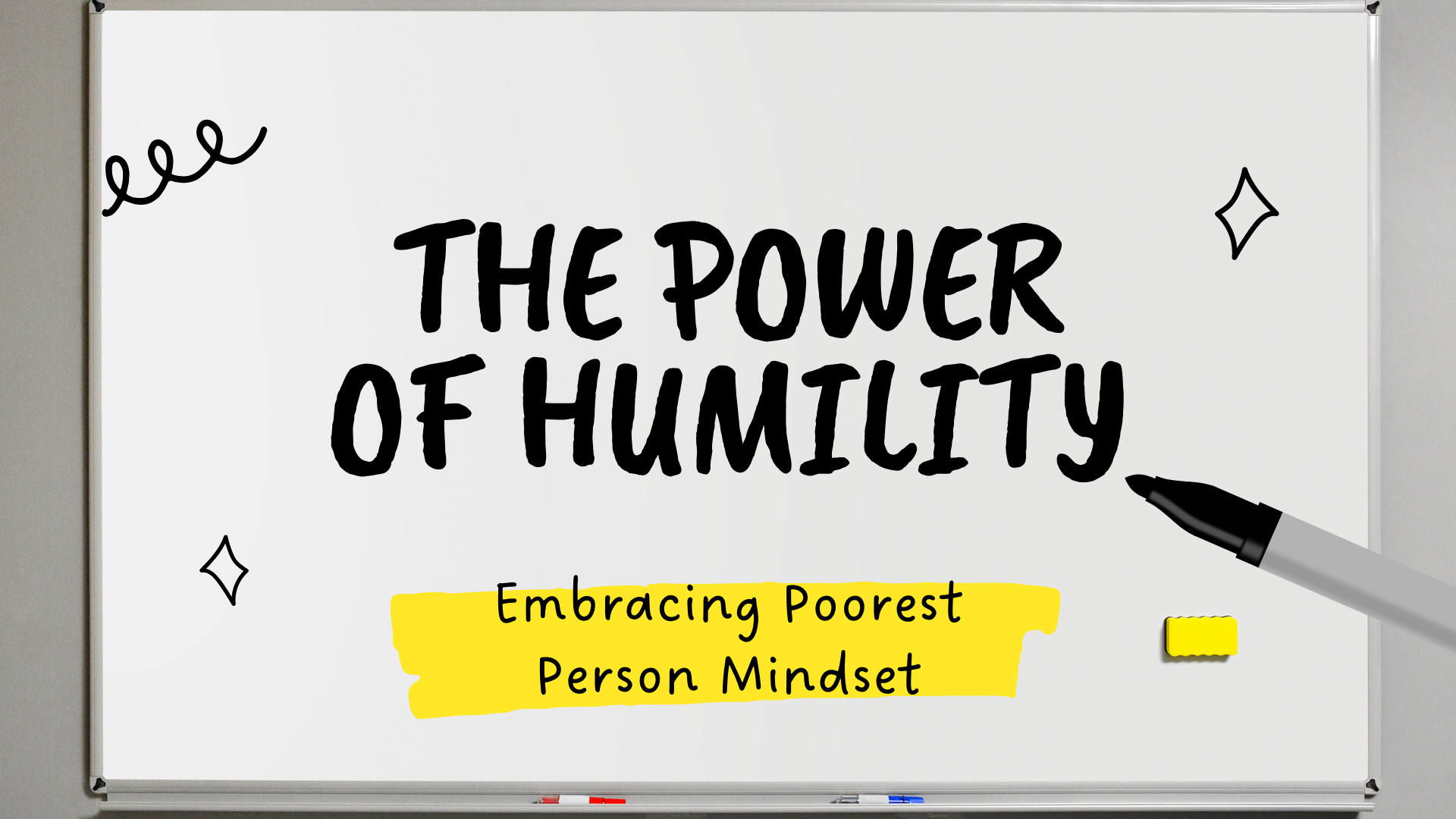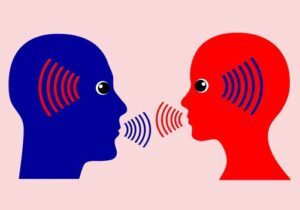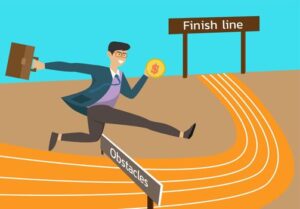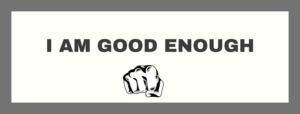Humility is not thinking less of yourself, it’s thinking of yourself less. – C. S. Lewis
In a world that often celebrates opulence and success, the idea of intentionally adopting the mindset of the poorest person in the universe might seem counterintuitive. However, there’s a profound wisdom in taking a step back, reevaluating our priorities, and immersing ourselves in a mindset of humility for a dedicated block of time each year.
Let’s explore the unexpected benefits of behaving like the poorest person in the universe and how this intentional shift can lead to personal growth and fulfillment.
1. Cultivating Gratitude:
By temporarily embracing a lifestyle that mirrors the challenges faced by the less fortunate, we gain a deeper appreciation for what we have. Gratitude becomes a natural byproduct, as we recognize the abundance in our lives that we might have taken for granted.
2. Building Empathy and Compassion:
Walking in the shoes of those less fortunate fosters empathy and compassion. Experiencing the daily struggles that many people face opens our hearts and minds to the diverse realities of the world. This heightened understanding can fuel a desire to contribute positively to the well-being of others.
3. Simplifying Life Choices:
Living with the mindset of the poorest person prompts a reassessment of our lifestyle choices. It encourages a simplified approach to living, where we distinguish between wants and needs. This clarity allows us to make more intentional decisions about how we allocate our time, energy, and resources.
4. Strengthening Resilience:
Experiencing a temporary shift to a more modest lifestyle enhances resilience. The challenges encountered during this period become opportunities to develop adaptability and fortitude. Overcoming these challenges contributes to a strengthened sense of resilience that extends beyond the designated timeframe.
5. Fostering Creativity and Resourcefulness:
When resources are limited, creativity flourishes. Behaving like the poorest person encourages us to find innovative solutions to everyday challenges. This newfound resourcefulness can be applied to various aspects of our lives, sparking creativity in problem-solving and decision-making.
6. Prioritizing Meaningful Connections:
In the pursuit of a simpler lifestyle, we often find ourselves prioritizing genuine connections over material possessions. This shift allows for more meaningful relationships, emphasizing the importance of human connection and shared experiences.
7. Reevaluating Materialism:
Behaving like the poorest person prompts a critical examination of our relationship with materialism. It challenges the societal norms that equate success with possessions. This reevaluation can lead to a more mindful and intentional approach to acquiring and appreciating material wealth.
8. Empowering Financial Discipline:
A period of intentional frugality fosters financial discipline. By limiting spending and focusing on essential needs, we gain insights into effective budgeting and resource management. This discipline can translate into long-term financial health and stability.
9. Enhancing Self-Reflection:
Living with the mindset of the poorest person provides an opportunity for deep self-reflection. It encourages us to question our values, aspirations, and the impact of our actions on the world. This introspection can lead to personal growth and a renewed sense of purpose.
10. Promoting Social Responsibility:
The experience of living with limited resources may inspire a commitment to social responsibility. Understanding the challenges faced by the less fortunate can motivate us to actively contribute to social causes, advocating for positive change and equality.
In conclusion, intentionally adopting the mindset of the poorest person for a dedicated block of time each year is a transformative exercise in humility. It offers a unique perspective that fosters gratitude, empathy, and personal growth. By challenging our assumptions and embracing simplicity, we not only gain a deeper understanding of ourselves but also contribute to a more compassionate and interconnected world. So, take a step into the shoes of the less fortunate, and discover the profound benefits of living with a humble and grateful heart.




